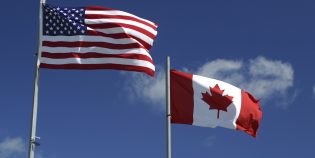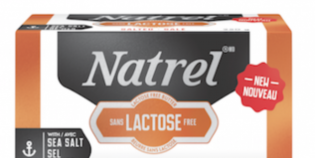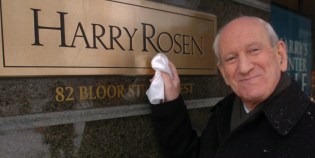As Target continues working to fix its inventory and image problems, the retailer faces a different challenge in Quebec: getting Quebecers to switch loyalties.
A new survey of 1,000 Canadian women by Toronto-based Headspace Marketing found that Quebecers are less likely to consider Target a destination for groceries, everyday items, health and personal care products compared to the rest of Canada.
In the survey, only 34% of Quebecers said they would most likely shop the grocery department at Target, compared to 47% of women in the rest of Canada; 42% said they’d shop for everyday items compared to 52% of non-Quebecers; and 39% said they shop the health and personal care department compared to nearly 49% of the rest of Canada.
“Quebecers are pretty set in their ways and are generally more loyal to some of the banners they shop in,” said Eric Blais, president of Headspace Marketing, a consultancy that helps marketers build their brands in Quebec.
On the grocery front, “Metro and IGA have stepped up their games and have done very well in the Quebec market,” said Blais. “Jean Coutu is a powerhouse and it delivers on beauty needs through personal relationships with the beauticians and so on. So those are tougher categories to compete in.”
When Target expanded into Canada last year, it aimed to have its customers do one-stop shopping, which is “a tough sell in English Canada and a tougher sell in Quebec,” said Blais. However, as part of its new turnaround plan, Target has shifted its focus to signature categories such as fashion, home décor and other products that once gave Target its edge — a strategy that should work well across the country.
“The good news is if the new management is really intent on bringing back the fashion flare through clothing, accessories and décor, it will give the brand cachet,” said Blais, noting that 62% of Canadian women said they would shop for clothing and accessories at Target.
Still, Blais said Quebecers “still don’t know what to make of Target.” When asked to rate their overall experience at Target, 38% of Quebecers said it was neither good nor bad (compared to 29% of the rest of the Canada). “That’s not delighting a customer and that’s not making a great experience,” said Blais. “It’s not negative but it’s not good either.”
Strangers in Quebec
The issue stems from Quebecer’s lack of familiarity with Target. When the retailer entered the Canadian market, Target expected that its reputation would precede it and Canadians would be eager to finally experience the brand’s experience closer to home. But it wasn’t a strong platform to build from in Quebec, said Blais, since only 24% of Quebecers have shopped at a U.S. Target store, compared to 54% of the rest of Canada.
Target should now use that to its advantage, said Blais. “Ironically now, it’s almost a good thing because Quebecers don’t have anything to compare it to,” he said. “Quebecers aren’t saying ‘this doesn’t feel like a Target,’” a common complaint heard across the rest of the country. Instead, Quebecers “think they’re getting a better Zellers.”
While Target faces some tough challenges across the country, most Canadians are willing to give it another chance. When asked if they were planning to shop at Target this fall, given the retailer’s pledge to fix its inventory problems and offer more competitive prices, nearly 74% said they would likely or very likely do so.
“Canadians are either very forgiving or the public apology is sticking,” said Blais. “They’re speaking directly to Canadians and saying we’re going to pick up our game and I think people like that.”










